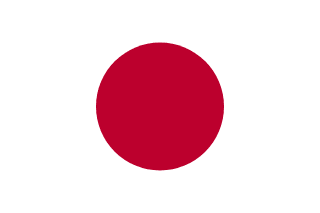
Sudoku Around the World: Cultural Twists on a Universal Puzzle
It’s easy to think of Sudoku as a quiet little numbers game you play on your phone or while waiting for a flight. But beneath those 9×9 grids lies a global phenomenon — one that’s taken root in every corner of the world, from Tokyo subways to New York coffee shops. Everywhere you go, people are scribbling digits, chasing that final satisfying “aha” moment.
And yet, even though Sudoku is universal, each culture has put its own twist on it — adding humor, art, community, or even philosophy. Let’s take a trip around the world through the lens of Sudoku online free and see how this humble puzzle has become a shared language of logic.
Japan: The Birthplace of Modern Sudoku
Though logic puzzles go back centuries, modern Sudoku as we know it today began in Japan. The name itself — Su-doku — comes from the phrase “Sūji wa dokushin ni kagiru,” meaning “the numbers must remain single.”
Japanese puzzle publishers like Nikoli were the first to popularize Sudoku in the 1980s, turning it into a national pastime. But Japan’s relationship with Sudoku goes deeper than just gameplay — it reflects the country’s love for precision, aesthetics, and calm focus.
Many Japanese solvers describe Sudoku as a form of zen logic: quiet, methodical, and meditative. Newspapers even feature daily Sudoku puzzles next to haiku and shogi problems, as if logic and art belong together. It’s not uncommon to see commuters solving puzzles in absolute silence, treating each grid as a small exercise in mindfulness.
The United Kingdom: From Tabloid Craze to Coffee Break Tradition
The rest of the world caught Sudoku fever when it hit British newspapers in 2004. A retired judge named Wayne Gould brought the puzzle from Japan to the UK — and within months, every major publication had a daily Sudoku section.
Brits turned solving into a social ritual. Offices ran Sudoku races during lunch breaks, and pubs even hosted “Sudoku quiz nights.” For a while, the puzzle’s popularity rivaled crosswords in the national press.
British humor also crept in. Tabloids cheekily described Sudoku as “crossword for the commitment-phobic,” since you don’t need vocabulary to play. The phrase stuck — and so did the habit. Even today, millions in the UK still start their morning with a newspaper, a cup of tea, and a fresh Sudoku.
The United States: Brain Fitness and Pop Culture Fame
When Sudoku reached the U.S. in the mid-2000s, it became more than a fad — it became part of the brain fitness movement. Magazines advertised Sudoku as a “gym for the mind,” claiming it could improve memory, focus, and even delay cognitive aging.
Soon enough, Sudoku entered American pop culture. It appeared in sitcoms, late-night jokes, and even on airplane entertainment screens. Coffee chains began printing mini Sudokus on to-go cups, and libraries held “Sudoku Saturdays.”
The U.S. also took Sudoku digital faster than anyone. Mobile apps, speed-solving contests, and educational versions for schools flourished. Today, countless players log on daily to sites like sudokus.io to play, compare times, and compete across time zones.
For many Americans, Sudoku is both a morning ritual and a badge of mental sharpness — proof that logic can be just as addictive as scrolling social media.
India: A Growing Community and Speed-Solving Craze
In India, Sudoku has evolved from a pastime into a competitive sport. Schools and universities host annual championships, and Indian players regularly rank among the world’s top solvers.
The country’s educational culture — valuing math, memory, and mental agility — has made Sudoku especially popular among students. For many, it’s a stress reliever during exams and a fun way to sharpen focus.
In recent years, Indian puzzle creators have gained global recognition for designing inventive Sudoku variants — from geometric hybrids to theme-based puzzles that mix color and art. It’s creativity meets calculation, and the results are dazzling.
And then there’s the speed-solving culture. At national events, hundreds of players race through grids in record time, cheered on by crowds as if it were an e-sport. The energy is contagious — part logic, part adrenaline.
France and Italy: The Art and Romance of Numbers
In France, Sudoku took on an unexpected twist: style. French publications treat Sudoku layouts almost like design objects — elegant fonts, soft colors, and perfect balance on the page. Puzzle magazines became coffee-table décor. For many, Sudoku is as much about aesthetic pleasure as mental challenge.
Meanwhile in Italy, Sudoku captured hearts for a different reason. Italians call it il rompicapo perfetto — “the perfect brain-teaser.” Families often play together after dinner, passing puzzle books across the table. Italian media even features celebrity Sudoku segments, where actors or chefs solve live on morning shows. It’s part logic, part entertainment — and very Italian in spirit: communal, expressive, and a little dramatic when someone makes a mistake!
The Online Era: A Global Sudoku Village
The internet turned Sudoku from a local pastime into a global community. Today, millions of players from dozens of countries compete in online leagues, share solving tips, and create new puzzle variations for others to try.
Platforms let players from New York, Nairobi, and New Delhi play the same puzzle at the same time — a small but beautiful example of global connection through logic. You’ll find users swapping advice, celebrating victories, and even hosting friendly “grid races.”
Sudoku has become a universal language — you don’t need to speak the same tongue to understand the thrill of a perfectly placed number.
Why Every Culture Loves Sudoku
What makes Sudoku so adaptable across cultures? Psychologists say it’s because the puzzle hits a universal human sweet spot: the mix of challenge and control. The rules are simple, but mastery feels infinite. Each country — each player — brings their own rhythm to it.
- In Japan, it’s mindfulness.
- In the UK, it’s ritual.
- In the U.S., it’s brain training.
- In India, it’s competition.
- In France and Italy, it’s art and connection.
Different stories, same satisfaction — that final click when the last square locks into place.
A Call to Puzzlers Everywhere
Whether you’re solving in Tokyo or Toronto, Sudoku is proof that logic transcends language and culture. It unites quiet minds across noisy cities.
So the next time you open a puzzle, think of the millions of other solvers doing the same — somewhere in the world, at that very moment. You’re all sharing a global meditation in numbers.
And if you’re ready to join that worldwide wave, visit sudokus.io and start your next adventure. Who knows — maybe your solving style reflects your culture, too.
Sudoku might have begun in Japan, but it now belongs to everyone. One grid, countless players, infinite possibilities.

 German
German
 Japanese
Japanese
 Arabic
Arabic
 Spanish
Spanish
 French
French
 Russian
Russian
